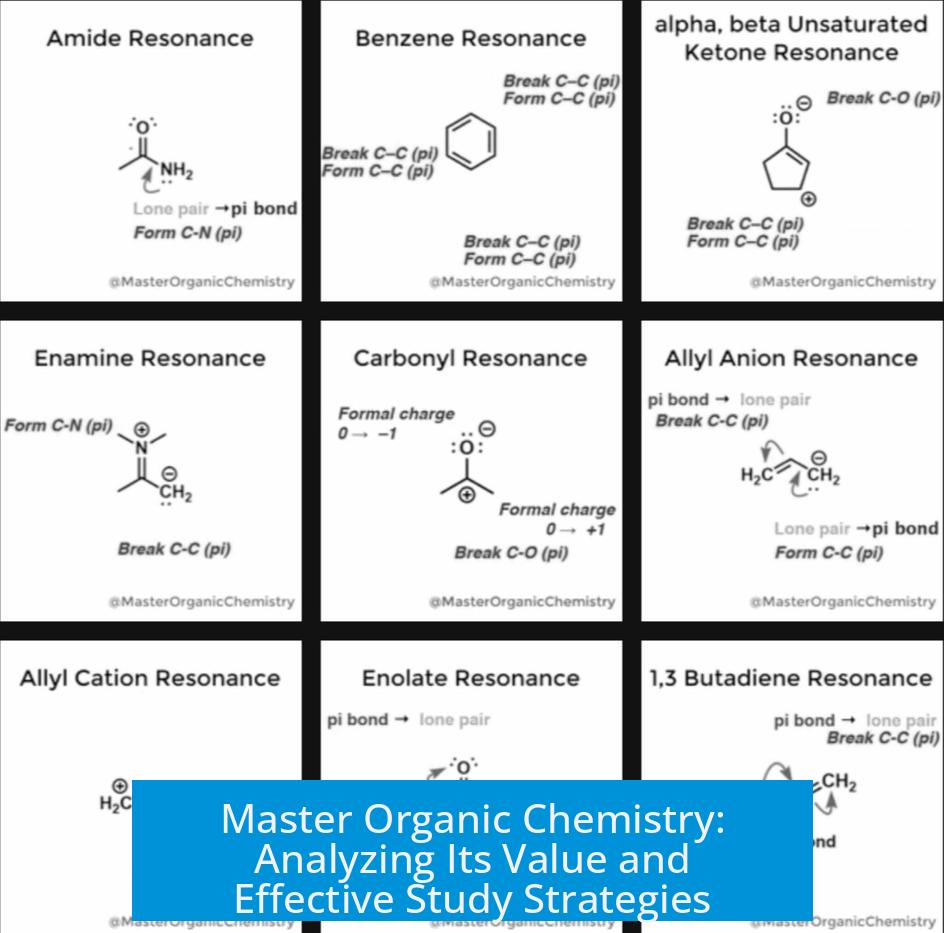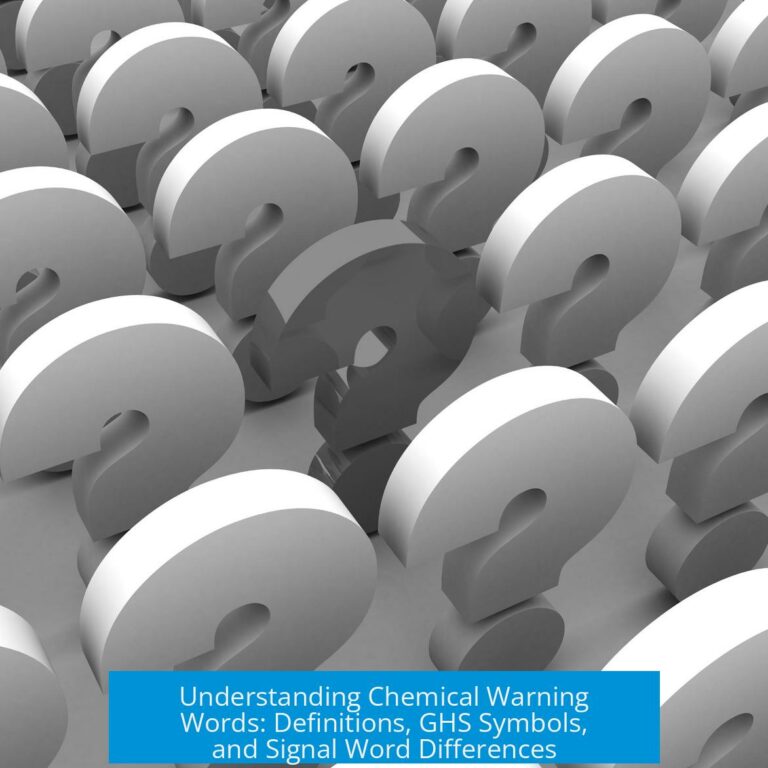Master Organic Chemistry: Is It Worth It?
Master Organic Chemistry is a valuable supplementary resource, but not absolutely necessary to excel in organic chemistry. Students who use it actively—by creating personalized notes and engaging with the material—may find it helpful. However, success can also be achieved through traditional study methods involving textbooks, problem-solving, and active class participation.
Understanding the Necessity and Value of Master Organic Chemistry
Many students question whether investing extra money or time into resources such as Master Organic Chemistry is essential for achieving top grades.
- Some argue that additional spending on external study aids is unnecessary if students stick to thorough textbook reading and consistent practice.
- Others note that Master Organic Chemistry offers freely accessible explanations online, making it a cost-effective option compared to paid materials.
- One common recommendation is to start with foundational textbooks like Klein’s Organic Chemistry before turning to supplemental sources like Master Organic Chemistry.
Overall, Master Organic Chemistry represents a helpful but non-mandatory tool. Students can obtain good grades without it, but it can enhance understanding if incorporated prudently.
Best Practices for Using Master Organic Chemistry Effectively
Success with Master Organic Chemistry depends on how one approaches the resource. Its greatest value lies in active, personalized engagement.
- Use it as a study aid to complement lectures and textbooks—not as a primary source.
- Create custom cheat sheets by summarizing content learned from Master Organic Chemistry and other platforms like Organic Chemistry Tutor videos on YouTube.
- Writing your own notes forces deeper comprehension and makes review sessions more effective.
- Repeated exposure to material—through watching videos, note-taking, then revisiting—is key to internalizing concepts.
Thus, Master Organic Chemistry works best when it encourages students to reconstruct and organize knowledge actively.
Alternative and Complementary Resources
Several other materials exist that can support or even substitute Master Organic Chemistry in organic chemistry learning.
| Resource | Description | Remarks |
|---|---|---|
| Textbook: Klein’s Organic Chemistry | Traditional textbook recommended for thorough study. | Focus on chapter reading, problem-solving, and repetition. |
| “Pushing Electrons” by Daniel Weeks | Affordable book focusing on electron-pushing mechanisms. | Professor recommended; helps with class concepts. |
| Ebook by Jakob Fredlos | Digital comprehensive resource on organic concepts. | Useful for deeper understanding or review. |
| Organic Chemistry Tutor videos (YouTube) | Free tutorial videos explaining core concepts. | Accessible; good for visual and auditory learners. |
Combining these resources based on learning style and availability can create an effective study ecosystem.
Effective Study Strategies in Organic Chemistry
Master Organic Chemistry or no, certain habits consistently improve student outcomes.
- Attend all lectures and participate by asking clarifying questions.
- Read your textbook thoroughly before and after lectures.
- Practice drawing resonance structures and calculating formal charges to build foundational skills.
- Write down reaction mechanisms by hand and annotate with notes for better retention.
- Develop personalized cheat sheets that condense essential reactions tailored to your professor’s focus.
- Prioritize doing many practice problems over passive reading.
- Analyze each problem to understand why the correct answer applies.
These approaches maximize active learning and long-term retention.
Perceptions of Master Organic Chemistry Instructors
The quality of instruction on Master Organic Chemistry receives favorable reviews.
“It’s good! He’s a really good teacher with tons of experience and he wants to help you, unlike some of the other profs at uni. It’s good stuff.”
Students appreciate the clarity, expertise, and supportive style of the Master Organic Chemistry instructor. This positive reputation reflects well on the resource’s potential to aid understanding.
Summary of Findings
- Master Organic Chemistry is a valuable supplemental resource but not strictly necessary for success in organic chemistry courses.
- Its true value lies in active use—writing personalized notes and cheat sheets rather than passive consumption.
- Other traditional resources, including Klein’s textbook and “Pushing Electrons,” remain highly effective study tools.
- Strong study habits such as attending classes, focused reading, and rigorous practice are paramount.
- The instructor behind Master Organic Chemistry is well regarded for teaching expertise and clarity.
Students should consider their own learning style, resource availability, and course requirements when evaluating if Master Organic Chemistry fits into their study plan.
Key Takeaways
- Master Organic Chemistry can enhance organic chemistry learning but is not essential.
- Active learning through note-taking and problem-solving drives success.
- Combining multiple resources fosters deeper understanding.
- Strong foundational skills in resonance and mechanisms improve performance.
- Quality instruction matters; Master Organic Chemistry’s teacher is highly regarded.
Is Master Organic Chemistry essential for scoring well in the course?
No, it is not essential. Many succeed by thoroughly reading textbooks like Klein and practicing problems repeatedly without extra paid materials.
How should I use Master Organic Chemistry to get the most benefit?
Use it as a supplement to your studies. Watch videos, then create personalized notes or cheat-sheets. This active process helps you understand and retain concepts better.
Are there good alternatives to Master Organic Chemistry for learning orgo?
Yes. Textbooks, “Pushing Electrons” by Daniel Weeks, and an ebook by Jakob Fredlos are recommended alongside free online videos and PDFs sent by instructors.
What study habits work best with Master Organic Chemistry resources?
Attend all lectures, ask questions, review textbooks, make notes, and solve many practice problems. Writing out mechanisms and personal cheat-sheets solidifies understanding.
What do users say about the teaching quality of Master Organic Chemistry?
The teaching is praised for clear explanations and helpful guidance. Many find the instructor more supportive than some university professors, making the resource quite valuable.





Leave a Comment